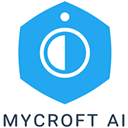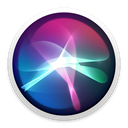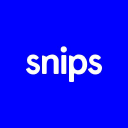Top SEPIA Framework Alternatives for Your DIY AI Assistant
SEPIA Framework is an innovative open-source system designed for building personal, private, and customizable digital voice assistants. Much like Siri, Alexa, or Cortana, SEPIA allows users to create a truly personalized AI experience, complete with a secure web server, natural language understanding, and smart service integrations. It's ideal for those looking to upgrade services with a voice interface, build smart speakers, or simply use a virtual assistant that prioritizes privacy. However, for various reasons—whether it's specific feature requirements, platform preferences, or a desire for different levels of control—many users seek a SEPIA Framework alternative. This article explores some of the best options available.
Top SEPIA Framework Alternatives
Whether you're prioritizing open-source flexibility, deep integration with existing ecosystems, or specialized functionalities, there's a SEPIA Framework alternative that could be the perfect fit for your needs. Let's dive into some of the leading contenders.

Google Assistant
Google Assistant is a widely recognized virtual personal assistant developed by Google. Unlike SEPIA's focus on privacy and DIY, Google Assistant offers seamless integration across a vast array of devices and services, including Android, iOS, and various smart home ecosystems. It's a free service that excels in general knowledge queries, task management, and smart device control, making it a powerful alternative for users who prioritize broad compatibility and extensive feature sets over full data ownership.

Mycroft
Mycroft stands out as the world's first open-source AI-powered voice assistant, making it a direct and compelling SEPIA Framework alternative for those committed to open-source principles. It runs on various platforms, including Linux, Android, and Raspberry Pi, offering similar hackability and configurability to SEPIA. Mycroft provides features like natural language processing, speech recognition, and voice commands, allowing users to build and customize their AI assistants without proprietary restrictions.

Cortana
Cortana, Microsoft's personal assistant, offers a robust set of features for staying on top of work and life. Available on Windows, Android, and iOS, Cortana provides voice recognition, file searching, SMS reminders, and customizable settings. While not open-source like SEPIA, Cortana offers deep integration within the Microsoft ecosystem and a user-friendly experience for those seeking a reliable and feature-rich personal assistant alternative.

Siri
Siri is Apple's ubiquitous personal assistant, deeply integrated into iPhone, iPad, Mac, Apple Watch, Apple TV, and HomePod devices. As a free service, Siri provides features like notetaking, song identification, and speech recognition, making it an excellent SEPIA Framework alternative for users firmly entrenched in the Apple ecosystem. Its ease of use and seamless integration across Apple devices make it a strong contender for everyday personal assistance.

Hound
Hound, available on Android, distinguishes itself with its advanced Speech-to-Meaning capabilities, combining speech recognition and natural language understanding. This allows for faster and more efficient searching and task execution without typing. While not an open-source framework, Hound offers features like calculators, flight status, and robust personal assistant functionalities, presenting a powerful alternative for those prioritizing accurate and quick voice interaction.

Siri Shortcuts
Siri Shortcuts, available for free on iPhone and iPad, extends Siri's capabilities by providing a quick way to automate tasks with apps. While not a standalone voice assistant framework like SEPIA, it offers powerful workflow automation and Siri integration. For users looking to enhance their existing Apple-based voice assistant with custom commands and automated sequences, Siri Shortcuts provides a robust solution.

Snips
Snips is an interesting SEPIA Framework alternative because it focuses on on-device processing for privacy. You can deploy your customized Snips voice assistant to various devices, including Raspberry Pi, Android, iOS, and Linux. This free personal option emphasizes privacy by running completely on-device, similar to SEPIA's private network capabilities. Snips features artificial intelligence, machine learning, and voice recognition, making it a strong choice for privacy-conscious users.

Amazon Alexa
Amazon Alexa, a free service available on Windows, Android, iOS, and more, powers Amazon's Echo devices and offers extensive smart home integration via IFTTT. While not open-source, Alexa provides a comprehensive ecosystem for smart home control, music playback, shopping lists, and news updates. For users prioritizing a robust smart home experience and wide device compatibility, Alexa is a formidable SEPIA Framework alternative.

Bixby
Bixby is Samsung's personal voice assistant, primarily found on Galaxy S8 and other Samsung devices. This free Android-based assistant learns and adapts to user needs through touch, type, or voice. While it's tied to the Samsung ecosystem, Bixby offers artificial intelligence and personal assistant features, making it a viable alternative for Samsung users seeking an integrated voice experience.

Almond
Almond is an open-source and self-hosted personal assistant, similar to SEPIA in its customizable and private nature. Available on Linux, Web, Android, and as a self-hosted option, Almond allows users to translate commands into personalized programs. It offers features like customizable triggers, natural language processing, service integration, and workflow automation, making it an excellent open-source SEPIA Framework alternative for those who desire full control and programmability.
Choosing the best SEPIA Framework alternative depends on your specific priorities. Whether you value open-source flexibility, deep ecosystem integration, privacy-focused on-device processing, or extensive smart home control, there's a voice assistant solution out there for you. Explore these options to find the perfect fit for your DIY AI assistant needs.